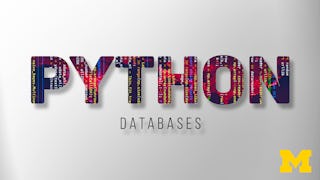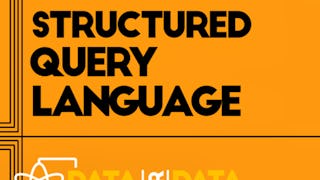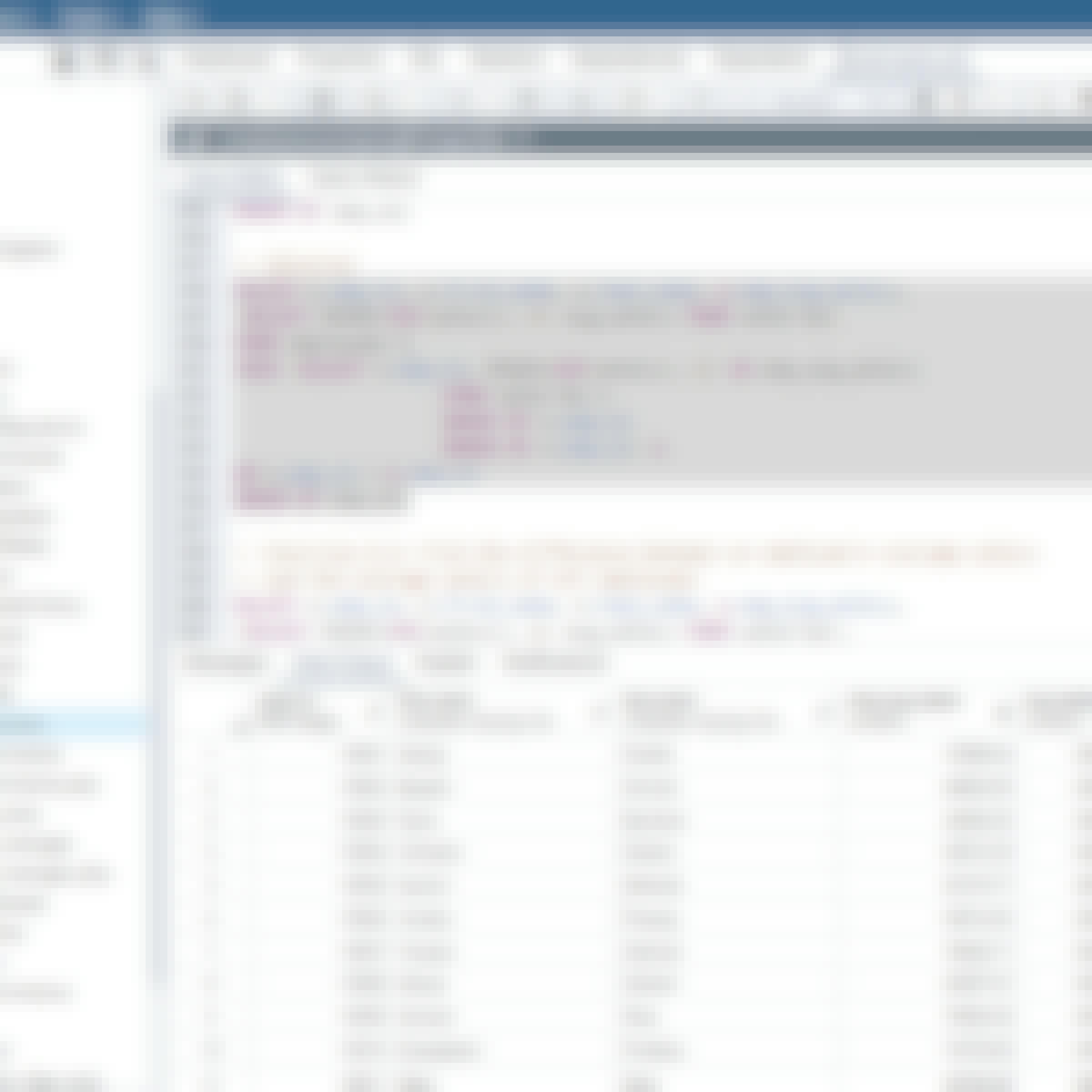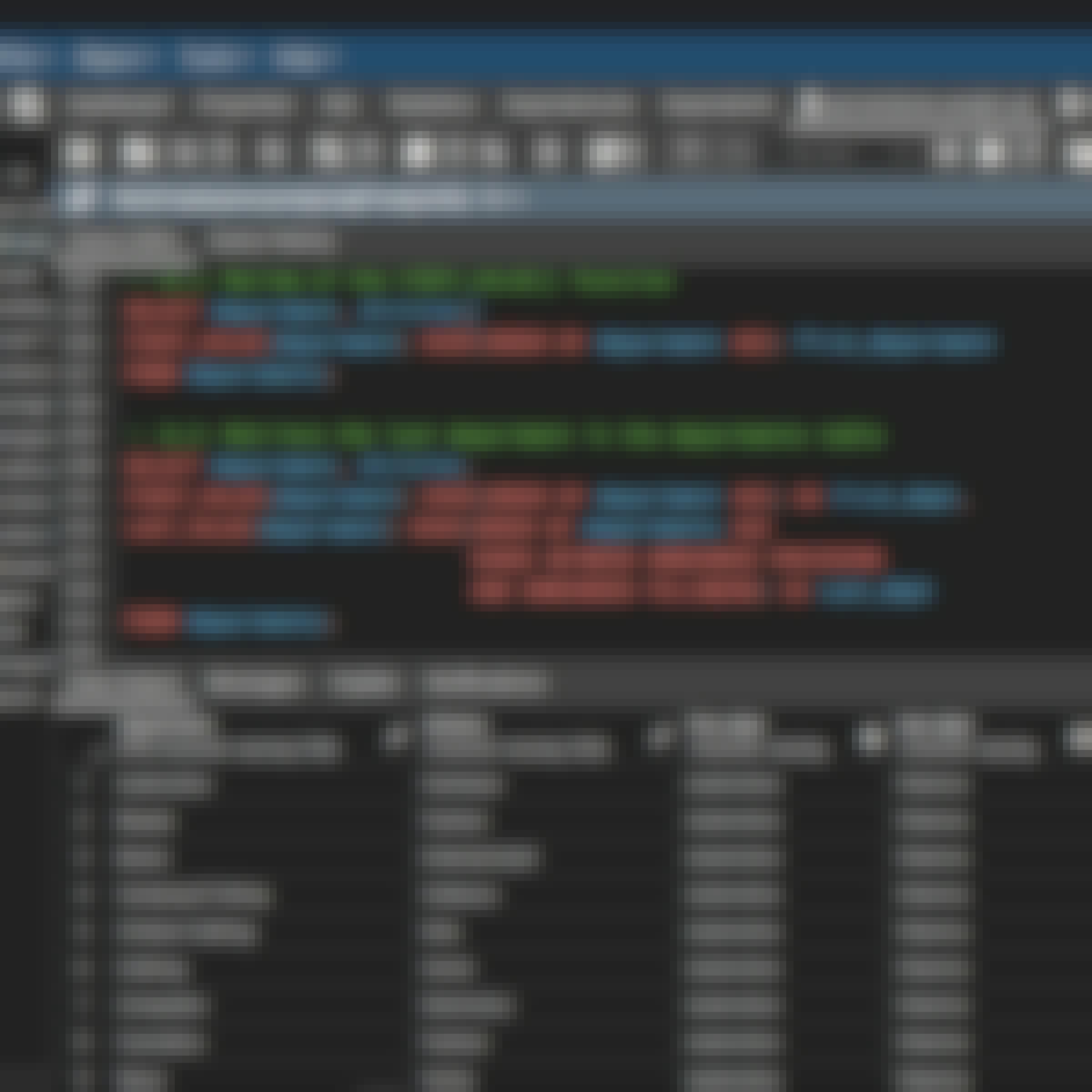Filter by
SubjectRequired
LanguageRequired
The language used throughout the course, in both instruction and assessments.
Learning ProductRequired
LevelRequired
DurationRequired
SkillsRequired
SubtitlesRequired
EducatorRequired
Explore the PostgreSQL Course Catalog

University of Colorado Boulder
Skills you'll gain: SQL, Database Design, Database Management Systems, NoSQL, Data Warehousing, Relational Databases, Database Management, Database Administration, Databases, Database Architecture and Administration, Query Languages, Database Theory, Data Modeling, Data Analysis, MongoDB, Big Data, Data Architecture, Data Access, Data Integrity, Data Manipulation

University of Michigan
Skills you'll gain: PostgreSQL, JSON, Text Mining, SQL, Databases, Natural Language Processing, Database Management, Data Processing, Application Programming Interface (API), Data Storage, Python Programming

University of Michigan
Skills you'll gain: Relational Databases, Database Design, SQL, Databases, Web Scraping, Data Modeling, Database Management, Data Visualization Software, Object-Relational Mapping, Object Oriented Programming (OOP), Data Processing, Python Programming, Application Programming Interface (API)

University of Colorado Boulder
Skills you'll gain: SQL, Database Management, Query Languages, Relational Databases, Database Design, Database Theory, Data Analysis, Data Access, Data Manipulation, Data Modeling

Skills you'll gain: Relational Databases, Database Management Systems, SQL, Database Design, Databases, MySQL, NoSQL, Query Languages

Skills you'll gain: Database Management, Database Architecture and Administration, Relational Databases, Operational Databases, Database Systems, IBM DB2, MySQL, Performance Tuning, PostgreSQL, Disaster Recovery, Data Storage Technologies, Database Design, System Monitoring, Role-Based Access Control (RBAC), User Accounts, Encryption

Skills you'll gain: SQL, Database Management, MySQL, Relational Databases, Database Systems, Query Languages, Databases, Database Application, Database Design, Data Access, Java, User Interface (UI)

Coursera Project Network
Skills you'll gain: SQL, PostgreSQL, Query Languages

Coursera Project Network
Skills you'll gain: SQL, PostgreSQL, Query Languages, Database Management, Database Systems, Data Manipulation

SkillUp EdTech
Skills you'll gain: PostgreSQL, Relational Databases, SQL, Database Management Systems, Node.JS, Database Management, Data Import/Export, Data Processing, Extract, Transform, Load

Google Cloud
Skills you'll gain: SQL, Google Cloud Platform, Database Development, Database Management, Data Import/Export, Query Languages, Data Warehousing

Fractal Analytics
Skills you'll gain: Database Design, Data Manipulation, SQL, Relational Databases, Database Management, Data Analysis, Data Cleansing, Databases, Query Languages, Data Transformation, Data Integrity
In summary, here are 10 of our most popular postgresql courses
- Databases for Data Scientists: University of Colorado Boulder
- JSON and Natural Language Processing in PostgreSQL: University of Michigan
- Using Databases with Python: University of Michigan
- The Structured Query Language (SQL): University of Colorado Boulder
- Introduction to Databases for Back-End Development: Meta
- Relational Database Administration (DBA): IBM
- Database Management with Java and SQL: Amazon
- Working with Subqueries in SQL: Coursera Project Network
- SQL Window Functions for Analytics: Coursera Project Network
- Vector Search with Relational Databases using PostgreSQL: SkillUp EdTech










